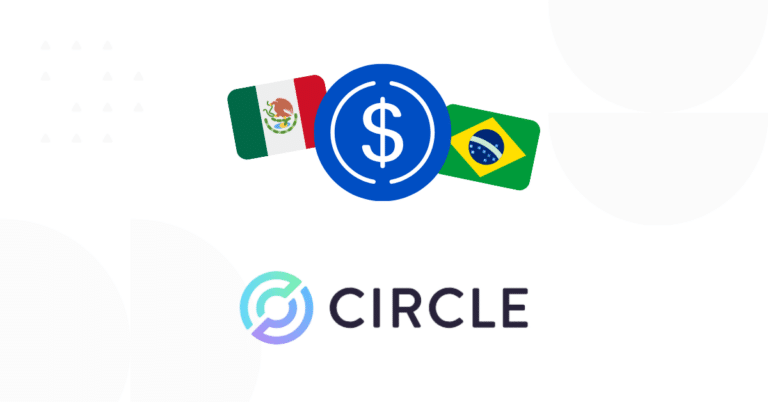Welcome to this week’s edition of This Week in Crypto, where we bring you the latest developments shaping the world of digital finance. This week, mainstream adoption takes a significant leap as Venmo and PayPal integrate the Ethereum Name Service (ENS), allowing users to send cryptocurrencies using simple usernames like “yourname.eth.” Circle expands its USD Coin (USDC) stablecoin into Latin America by integrating with Brazil’s PIX and Mexico’s SPEI real-time payment systems, streamlining cross-border transactions in the region. Additionally, Louisiana becomes the latest U.S. state to embrace digital currencies by accepting cryptocurrency payments for state services, including fines and fees. Dive in as we explore how these milestones are propelling the crypto industry forward.

PayPal and Venmo Integrate ENS for Crypto Payments
Venmo and PayPal users in the United States can now transfer cryptocurrency using Ethereum Name Service (ENS) names, making the process as simple as sending to a username like “yourname.eth” instead of a long string of letters and numbers. Announced by ENS Labs on September 10, this integration aims to reach over 270 million users, simplifying transactions and reducing the risk of errors and lost funds. PayPal’s active involvement in the blockchain industry—including its stablecoin PayPal USD (PYUSD) surpassing $1 billion in market capitalization and its launch on the Solana network—highlights its investment in cryptocurrencies.
This partnership is seen as a significant step toward mainstream adoption of crypto payments, potentially bridging the gap between traditional finance (Web2) and the decentralized world of Web3. Marta Cura, director of business development at ENS Labs, stated that the integration could open up new use cases with various payment providers and e-commerce platforms. While ENS names are nearing 2 million registrations with over 888,000 unique participants, broader adoption will require collaboration with traditional financial companies. Although partnering with these firms may take longer due to strict approval processes, their influence could be crucial in bringing cryptocurrency to a wider audience.

Circle Integrates USDC with Brazil and Mexico’s Payment Systems
Circle, the company behind the USD Coin (USDC) stablecoin, has integrated USDC with the national real-time payment systems of Brazil and Mexico. Announced on September 17, this integration allows businesses to access USDC directly through local financial institutions without relying on international wire transfers. By connecting USDC with Brazil’s PIX and Mexico’s SPEI systems, companies can now use the stablecoin for corporate purposes and offer it to retail customers, reducing transaction times from days to just minutes.
This move aims to enhance cross-border transactions in Latin America, a region where remittances and trade with the United States are significant. In 2023, remittances from the U.S. to Mexico totaled $63 billion, accounting for up to 4% of Mexico’s economy. By making USDC available in local currencies like the Brazilian Real (BRL) and the Mexican Peso (MXN), Circle hopes to streamline these financial activities. The integration could potentially boost financial efficiency, given that a large portion of Brazil’s $640 billion annual foreign trade and Mexico’s $800 billion exchange in goods and services with the U.S. are conducted in dollars.

Louisiana Now Accepts Cryptocurrency for State Payments
Louisiana has officially begun accepting cryptocurrency payments for state services, making it one of the latest U.S. states to embrace digital currencies. Announced by State Treasurer John Fleming, residents can now use Bitcoin (BTC), the Bitcoin Lightning Network, and the U.S. dollar-pegged stablecoin USDC to pay for various state services. The first cryptocurrency payment—a fine to the Louisiana Department of Wildlife and Fisheries via the Bitcoin Lightning Network—has already been processed. This initiative is a collaboration between the state, Bead Pay, and local integration partners, aiming to modernize payment systems and reduce fraudulent transactions.
Fleming emphasized that while the state accepts cryptocurrency, all funds received will be converted into U.S. dollars to protect against market volatility. “In today’s digital age, government systems must evolve and embrace new technologies,” he said. “By introducing cryptocurrency as a payment option, we’re not just innovating; we’re providing our citizens with flexibility and freedom in interacting with state services.” Republican State Representative Mark Wright, a key proponent of cryptocurrency adoption in Louisiana, also expressed his support.








